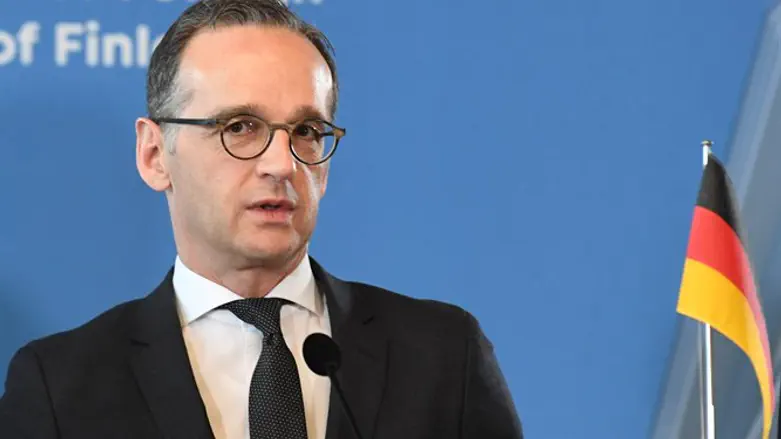
Germany's top diplomat on Sunday reaffirmed his country's support for a two-state solution to the Israeli-Palestinian Authority (PA) conflict ahead of a long-awaited US peace plan.
"We are still in agreement that reaching a two-state solution through negotiations is the only solution," Heiko Maas said during a press conference in Amman with his Jordanian counterpart.
Washington is gearing up to roll out economic aspects of its plan at a conference in Bahrain later this month, but it is not yet clear when its political details will be unveiled.
PA Chairman Mahmoud Abbas has rejected the deal outright, saying he hopes the deal "goes to hell."
"We and Germany agree that the two-state solution is the only way to end the conflict," Jordanian Foreign Minister Ayman Safadi said.
Maas and Safadi met a day after US ambassador to Israel David Friedman was quoted by The New York Times as saying Israel has the "right" to annex at least parts of Judea and Samaria.
PA leaders said the US envoy's comments showed "extremists" were involved in White House policy on the issue.
Israel conquered Judea and Samaria from Jordan in the 1967 Six-Day War.
Friedman has in the past been a supporter of Israeli settlements as has the family of Jared Kushner, Trump's son-in-law and adviser leading efforts to put together the peace deal.
Kushner has hinted that it will not endorse international calls for the creation of a Palestinian state.
Several UN resolutions have enshrined the two-state solution, which envisages separate homelands for Jews and PA Arabs, as the path to a peace settlement.
Both ministers also stressed the importance of the United Nations agency for PA "refugees," just weeks after the US called for it to be dismantled after cutting its roughly $300 million annual donation.
Jordan is home to nearly 2.2 million "refugees," who make up almost half of the kingdom's population.
Separately, Maas said Germany would give Jordan a $100 million loan to help cope with economic difficulties in the kingdom where IMF-backed fiscal reforms sparked mass protests last year.
Jordan, whose stability is seen as vital for the volatile Middle East, also hosts some 1.3 million refugees from neighboring war-torn Syria.